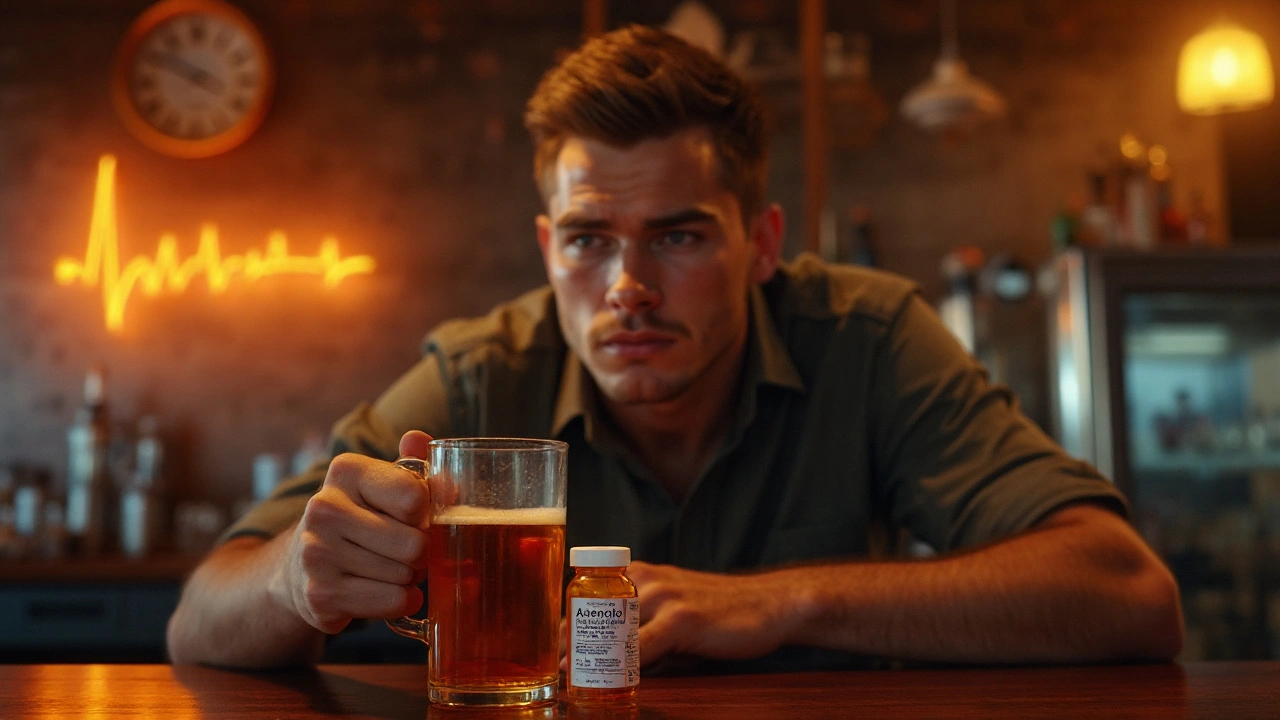Beta Blocker and Alcohol: Simple Facts and Safe Tips
If you take a beta blocker for blood pressure, heart rhythm, or anxiety, you’ve probably wondered whether a glass of wine or a beer is okay. The short answer is: it depends, and you need to understand the basics before you reach for that drink.
How Alcohol Interacts with Beta Blockers
Beta blockers work by slowing your heart rate and reducing the force your heart pumps. Alcohol also relaxes blood vessels and can lower blood pressure. When you mix the two, you might feel extra dizziness, faintness, or a slower heartbeat than usual. That’s because both substances lower the signals that keep your heart ticking at a normal pace.
Not every beta blocker reacts the same way. Some, like propranolol, cross the blood‑brain barrier and can make you feel more sleepy when you drink. Others, like atenolol, stay mostly in the bloodstream and might cause less noticeable sedation, but the blood‑pressure drop can still be stronger.
Practical Guidelines for Drinking Safely
First, talk to your doctor. They know your dosage, health history, and which beta blocker you’re on. A common suggestion is to limit yourself to one standard drink (12 oz beer, 5 oz wine, or 1.5 oz spirits) and see how you feel. If you notice light‑headedness, stop drinking and sit down.
Second, never drink on an empty stomach. Food slows alcohol absorption and can reduce the sudden spike in its effects. Pair your drink with a meal that contains protein and healthy fats for steadier blood‑sugar and blood‑pressure levels.
Third, stay hydrated. Alcohol is a diuretic, and beta blockers already affect fluid balance. Drinking water between alcoholic drinks helps keep blood volume stable and lessens the risk of a sudden drop in pressure.
If you’re driving or operating machinery, err on the side of caution. Even a modest amount of alcohol combined with a beta blocker can impair reaction time more than either alone. The safest bet is to avoid alcohol before any activity that requires full alertness.
Watch for warning signs. Headache, confusion, rapid or irregular heartbeat, or severe fatigue could mean the combo is taking a toll. If any of these happen, call your healthcare provider right away.
Finally, remember that chronic heavy drinking can undermine the very reason you’re on a beta blocker. Long‑term alcohol use may increase blood pressure, trigger heart rhythm problems, and even interfere with how your liver processes the medication. Cutting back or quitting can improve the effectiveness of your treatment.
Bottom line: occasional, moderate drinking may be okay with many beta blockers, but you need to know your specific medication, start low, and pay attention to how your body reacts. When in doubt, skip the drink and keep your heart steady.
Atenolol and Alcohol: Risks, Symptoms, and Safe Guidelines
Learn why mixing atenolol with alcohol can be hazardous, what symptoms to watch for, and how to stay safe while on this heart medication.
Learn more...